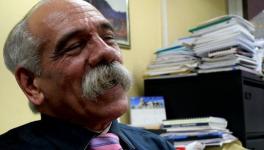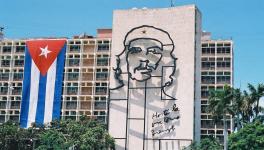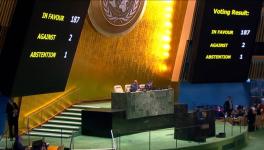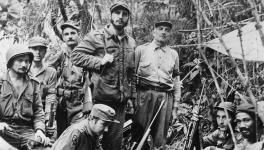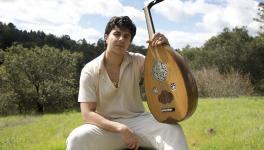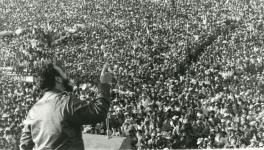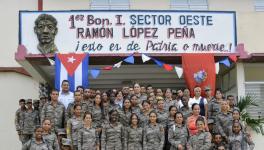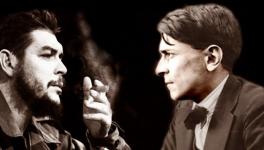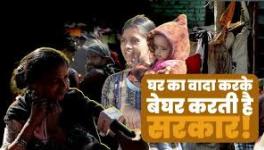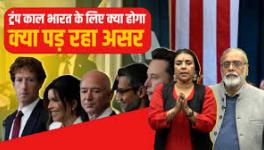Kolkata: Che Guevera's 1959 Visit to the City Commemorated by AIPSO
The commemoration seminar was attended by Abel Aballe Despaigne, deputy chief of mission, Cuban Embassy, Delhi, CPIM state secretary and AIPSO patron MD Salim, and Prof. Sobhanlal Datta Gupta among others.
Cuban revolutionary Che Guevera's Kolkata visit in 1959 was commemorated on Monday at Triguna Sen Auditorium of Jadavpur University in Kolkata by the All India Peace and Solidarity Organisation (AIPSO).
For his India visit, Guevara arrived in New Delhi on June 30, 1959. In his time in the city, he met Prime Minister Jawahar Lal Nehru; this meeting was before the establishment of formal diplomatic relations between Cuba and India.
Afterwards, Guevara visited the Indian Statistical Institute (ISI) in Kolkata and stayed there for a few days. At the time, ISI, under Prof. Prasanta Chandra Mahalanobis, was involved in preparing the 'Draft Plan-frame' in 1955 for the Second Five Year Plan.
Guevara played a critical role in the Cuban revolution. After the revolution, he played an essential part in bringing about agrarian reforms in Cuba, serving as Minister of Industries in 1961.
The commemoration seminar was attended by a host of luminaries, including Abel Aballe Despaigne, deputy chief of mission, Cuban Embassy, Delhi, CPIM state secretary and AIPSO patron MD Salim, and Prof. Sobhanlal Datta Gupta.
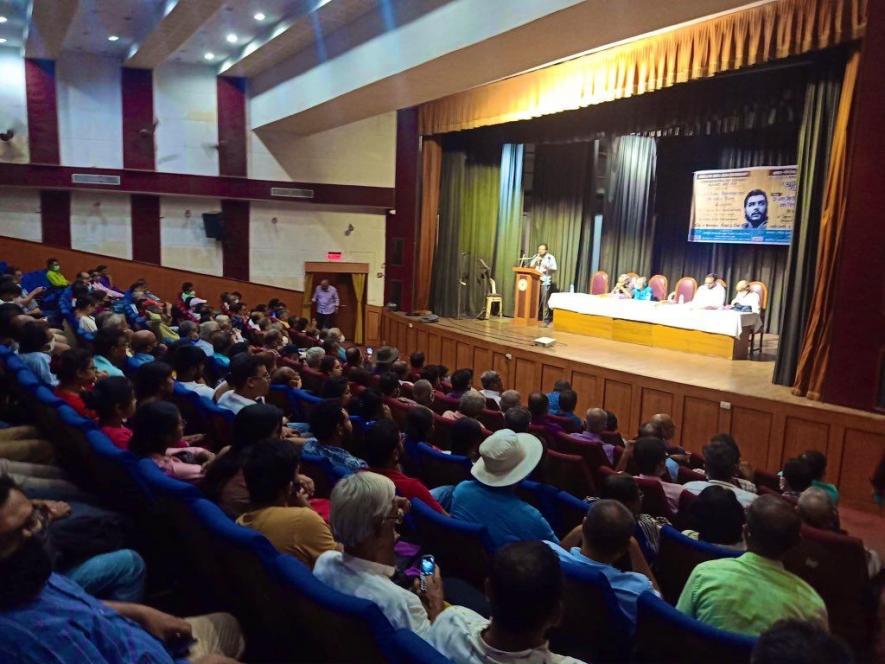
The seminar was titled "Che and Cuba Humanism and Alternative Vision." A documentary film about Che Guevera and Fidel Castro was also shown at the end of the programme, which was held in collaboration with the National Committee for Solidarity With Cuba. Prof Ashok Nath Basu, former VC, Jadavpur University, chaired the programme.
In his speech, Gupta, former emeritus professor of political science, Calcutta University, highlighted that the mainstream understands Che Guevera as a romantic revolutionary, but he was the architect of revolutionary humanism.
"Che Guevera stressed a higher consciousness level with revolutionary thoughts, which also implies internationalism. Many Latin American countries have adopted his model of guerilla warfare. He was an ardent reader of Karl Marx's writings at a young age. To him, socialism meant the end of alternative."
Gupta also mentioned how Che Guevera talked about alternative revolutionary morality in an exchange with Soviet students and professors in December 1964. Che Guevera's writings are similar to Rosa Luxemburg's works, as per Gupta.
Salim, in his speech, talked about how Che Guevera has been a constant source of inspiration for young people worldwide.
"After the fall of the Soviet Union, it was predicted that socialism was finished. Still, Che Guevera's legacy kept inspiring millions of youths across the globe. Che Guevera also stressed that religion has nothing to do with morality; it is ethics which collectivises a population. Hence, he stressed collectivism, even in his last letter to his family," Salim said.
Salim also highlighted that although the Cuban economy is not self-sufficient as fuel sources are non-existent in the country, it continues to serve as a source of multicultural and multiracial assimilation.
Recalling a visit to Havana, Cuba, in the 1990s to attend the World Youth Festival, Salim remembered how Black, Brown and White people walked together on the city's roads.
"Cuba does not send tanks but sends doctors to help people across the globe on humanitarian missions. Even under severe duress due to the US blockade, Cuba has sent doctors to other countries."
Despaigne, in his address, talked about Cuba's revolutionary spirit in relation to Castro and Che Guevera and highlighted the socialist system of the country where education is free for all.
"Ernesto Guevera was born in Argentina, but Che was born in Cuba," he said.
Moreover, Despaigne questioned why one island that is standing against injustice has been at the received end of the US' wrath.
"Even during the first wave of the pandemic, the US tightened the blockade against Cuba and stopped the Oxygen tank shipments by threatening the shipping company. The US' actions won't stop Cuba from continuing with socialism. The Cuban revolution is alive no matter what," Despaigne said amid huge cheers from the audience.
Despaigne also highlighted how Cuba dealt with the pandemic.
"About 90% of the Cuban population is now vaccinated. We are the only country where every child above two years has received a COVID vaccine. We sent 50 brigades of doctors to 40 countries even after facing sanctions. The Cuban economy is on a path to recovery after the pandemic-induced crisis in the tourism sector. This year, there has been a 2% turnaround despite the US blockade."
Soumendra Nath Bera, general secretary, AIPSO West Bengal unit, ushered in the guest through his speech, highlighting the intrinsic relations between India and Cuba, which started months after the Cuban revolution with Che Guevera's visit. Bera stressed how Kolkata also hosted Che Guevera's daughter, Dr Alaida Guevera March, in 1997.
The programme, which also saw the participation of AIPSO National leader Rabin Deb, was also participated by famous IPTA Artist Kankan Bhattacharya and his team. They sang the Bengali translation of the two popular Cuban songs.
Get the latest reports & analysis with people's perspective on Protests, movements & deep analytical videos, discussions of the current affairs in your Telegram app. Subscribe to NewsClick's Telegram channel & get Real-Time updates on stories, as they get published on our website.









